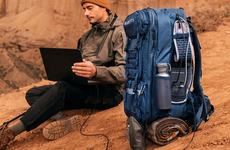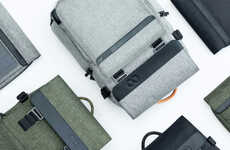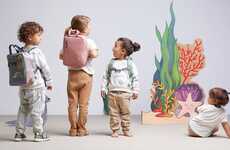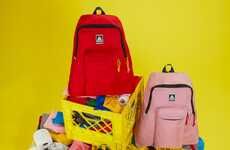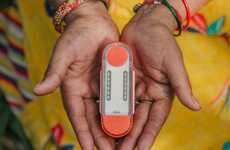
The Soular Backpack Provides Solar Bags to Children in Need in East Africa
Grace Mahas — February 24, 2021 — Social Good
References: thesoularbackpack
The Soular Backpack is an organization dedicated to improving the lives of children in Kenya, Uganda, and Tanzania. Salima Visram designed the Soular Backpack to help tackle one of the "multitude of problems related to [the] education of children in Kenya." For every backpack purchased, Soular Backpack will donate a solar-powered backpack to a child in need – saving a family 20% of their income which was previously spent on kerosene.
Kerosene lamps use kerosene as a fuel which presents various dangers including poisoning, fires, and explosions while reducing lung function and increasing the risks of asthma and cancer. Each Soular Backpack has a solar panel on it that charges a portable LED lamp inside of it, eliminating the need for kerosene.
Image Credit: The Soular Backpack
Kerosene lamps use kerosene as a fuel which presents various dangers including poisoning, fires, and explosions while reducing lung function and increasing the risks of asthma and cancer. Each Soular Backpack has a solar panel on it that charges a portable LED lamp inside of it, eliminating the need for kerosene.
Image Credit: The Soular Backpack
Trend Themes
1. Social Good Backpacks - Backpacks with a social cause to improve education and save energy in developing countries.
2. Solar-powered Backpacks - Backpacks with built-in solar panels for charging portable LED lights and other gadgets.
3. Donation Model - For-profit companies incorporating a donation model into their business plan.
Industry Implications
1. Charity and Non-profit - Opportunity for charities and non-profit organizations to provide solar-powered backpacks to kids in need.
2. Renewable Energy and Solar - Innovative use of solar technology to replace kerosene lamps and reduce energy poverty.
3. Retail and Consumer Goods - For for-profit companies to incorporate a social good aspect into their product line and encourage socially responsible consumerism.
2.4
Score
Popularity
Activity
Freshness



